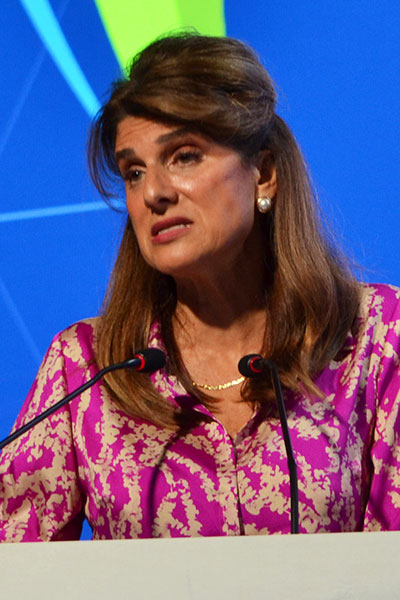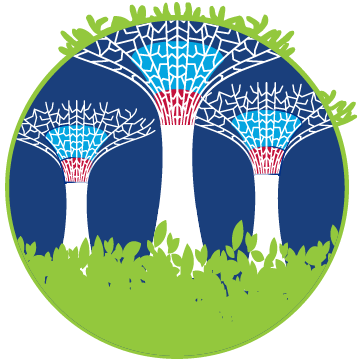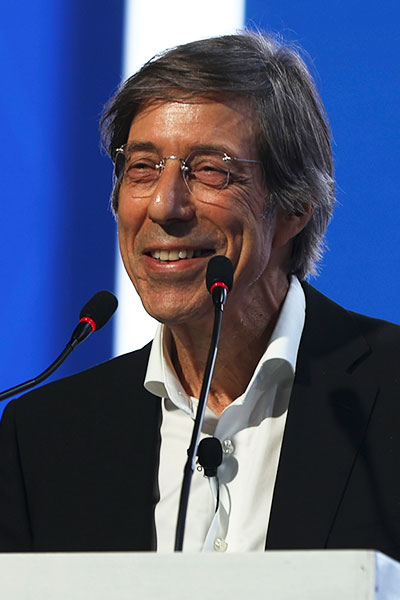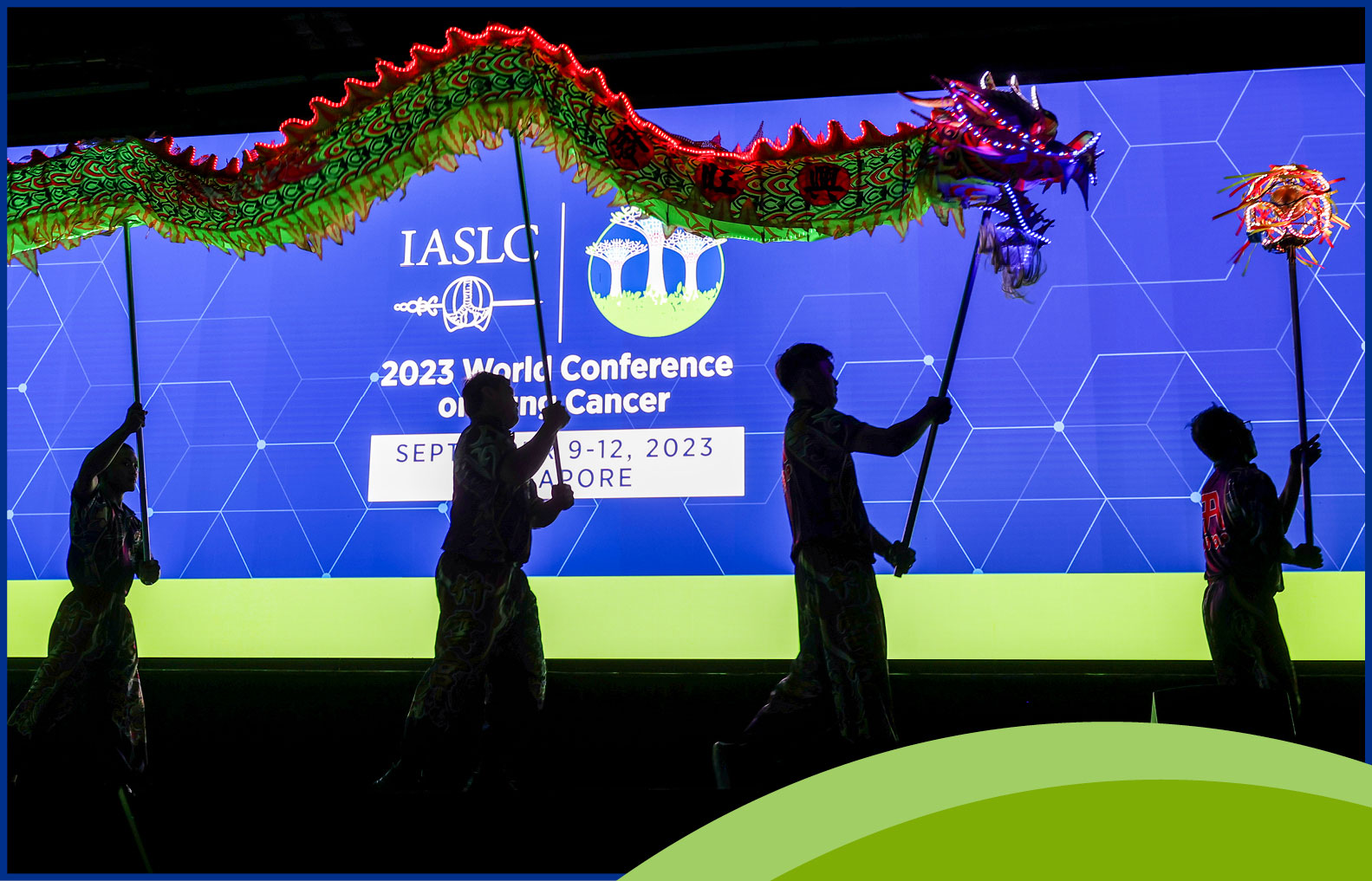
Her Royal Highness Princess Dina Mired of Jordan is a global humanitarian and “fierce activist” for eradicating cancer and other non-communicable diseases (NCDs), according to Jill Feldman, a lung cancer patient and Deputy Chair of IASLC’s patient advisory board, who introduced Princess Dina during the Opening Plenary Session of the 2023 World Conference on Lung Cancer.
The plenary session on Saturday evening, September 10, officially kicked off the meeting in Singapore and featured several award presentations, a lecture on the humanitarian crisis in cancer by Gary Rodin, MD, FRCPC, and a cultural dance and musical performance celebrating the meeting’s host city. However, the evening’s biggest reaction was reserved for Princess Dina, who lived up to her “fierce” introduction by taking direct aim at cancer drug prices, the tobacco industry, the global health care system, and other targets that she said are “delivering breathtaking inequity” in lung cancer treatment.

Opening Plenary: Equity and Access to Appropriate Clinical Care in Lung Cancer—Pathway Towards Effective Global Implementation
Lung Cancer Treatment Divide—Breathtaking Inequity
Her Royal Highness Princess Dina Mired, Jordan
The Humanitarian Crisis in Cancer: Challenges and Solutions
Gary Rodin, Ontario, Canada
On drug pricing: “How can we be jubilant about these great breakthroughs in lung cancer treatment when they are targeted only for the few. The irony is that personalized medicine is purported to both tailor healthcare and drive down costs, but the more it [has] succeeded at personalization the more the costs [have] escalated to unattainable prices.”
Princess Dina noted that lung cancer drugs such as osimertinib and crizotinib can cost $10,000 to $20,000 a month, while other personalized cancer therapies can cost as much as $50,000 per month. “This automatically excludes patients from low- to middle-income countries (LMICs), as well as vulnerable and economically challenged populations within high-income countries (HICs),” she said.

On the tobacco industry: “Having lost their revenues from countries who have implemented strict anti-tobacco measures to protect their own citizens, they come looking for [LMIC] countries to provide [more tobacco users in the form of ] the lungs of our population, especially our youth. They specifically prey on countries facing economic challenges and dangle their cigarette tax revenue dollars as if they are the saviors of those economies when, in fact, we all know that [revenue] is more than offset by the medical costs and environmental damage costs.”
On the global health system: “The global health system needs to be organized in such a way whereby the notion of equity is at the root of its formation, and not only for viruses that travel borders. It needs to include cancer and other NCDs.”
Princess Dina noted that the World Health Organization declared a public health emergency in January 2020 when the official death toll from the novel coronavirus that caused the COVID-19 pandemic was 171 at that point.
“I believe that perhaps 10 million people dying from cancer each year, many of them in LMICs and vulnerable communities in HICs, is a big enough number to prompt similar gasps of horror and set off the alarm in pandemic proportions on an international scale,” she said.
Dr. Rodin also addressed the humanitarian toll of cancer, but from a psychosocial perspective. He described how psychological, social, and cultural dimensions of patient care are neglected in modern medicine in favor of interventions that involve biology and technology.
“This is the tilt of modern medicine. It’s tilted toward the biology rather than toward the human dimensions of cancer care,” said Dr. Rodin, the Joint University of Toronto/University Health Network Harold and Shirley Lederman Chair in Psychosocial Oncology and Palliative Care and is Head of the Department of Supportive Care at the Princess Margaret Cancer Centre in Toronto. Dr. Rodin is also the Director of the Global Institute of Psychosocial, Palliative and End-of-Life Care and a Professor of Psychiatry at the University of Toronto. His research program is focused on the development, testing, and global implementation of novel psychological and palliative interventions for patients with advanced cancer and their families.
Dr. Rodin and colleague Sarah Hales, MD, PhD, a psychiatrist at the Princess Margaret Cancer Centre, developed a psychotherapeutic intervention known as Managing Cancer and Living Meaningfully (CALM). CALM focuses on four content domains that address issues commonly faced by individuals with advanced and metastatic cancer: symptom management and communication with health care providers; changes in self and relationships with others; spirituality, sense of meaning, and purpose; and sustaining hope and facing mortality. CALM therapy optimally consists of three to six individual sessions delivered over 3 to 6 months, by a wide range of specially trained healthcare professionals.
In a randomized trial, CALM alleviated depression, reduced death anxiety, improved communication with healthcare providers, and improved end-of-life preparation for patients with metastatic or advanced cancer. The intervention has been implemented in more than 15 countries.
“We now have a global network and we’re recently doing workshops in Africa, South America, Europe, and almost all parts of the world. There has been enormous interest and tremendous uptake,” Dr. Rodin said.






